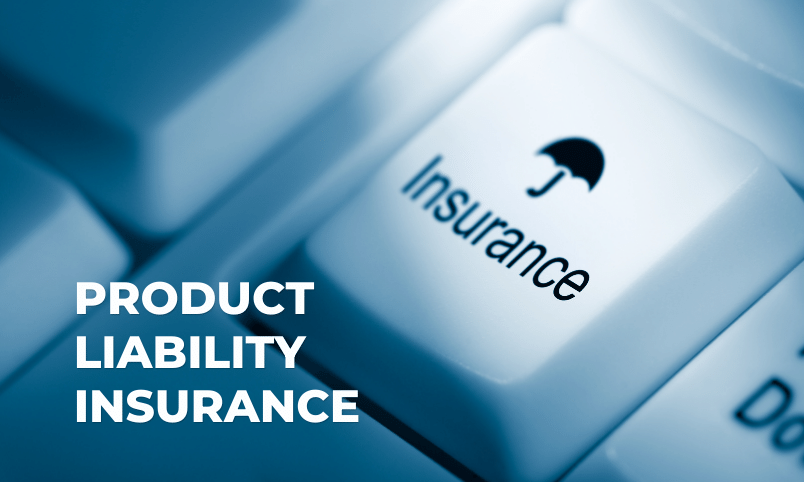By Esabda
In today’s time, every small business person has to think about various insurance in terms of being safe from future risks. Product liability insurance is one of the essential insurances any business has to get. Like any other small business insurance type eg. Health insurance or commercial property insurance, product liability insurance is one that you can not miss. Let’s find out why product liability insurance is so crucial and how it works for small businesses.
What Is Product Liability Insurance?
Product liability insurance is a protection for your business against a lawsuit claiming that the product manufactured by you harms or damages any third party or their property. This insurance is made for the businesses that produce, provide, or sell products to the general public. Insurance helps defend your company against claims showing particular injury or property damage to customers.
This actually means that if someone is harmed by the product that your business manufactured. And they may file a lawsuit against you or your company to recover their damages. The insurance company will try to cover those accidents that take place. But, it also depends on which policy you choose for your business.
Why do Small Businesses Need Product Liability Insurance?
Small businesses have limited capital and resources for their functioning. Any big risk can affect the business regulation and its future. Various types of allegations can cause them to pay huge amounts of costs. Which is not good for the growth of small businesses.
When small business manufacture and sells products, it is always at risk of causing damage to someone or their property. For example, let’s assume you have a small business that produces organic hair shampoo. And one of your customers suddenly claims it affecting their hair (maybe causing hair fall) and files a lawsuit against your company. Then your product liability insurance comes to defend you and help to cover the damage of the damage claimer.
What Does Product Liability Covers In Small Business?
If your business already has general liability insurance, then it will cover most of the areas of product liability insurance. Some of the major claims that your product liability insurance covers are as follows:
- Manufacturing Defects: Defects and errors happened while manufacturing the product.
- Design Defects: It is a defect that started before the manufacture of the product.
- Improper Warnings: When the manufactured and sold product does not contain proper and enough warnings about product use.
- Strict Liability: This means the manufactured product harms the user even if is not the business owner’s intention.
- Marketing Mistake: Mistakes and false leading advertisements while marketing products.
Be aware that product liability and product recall are different. Before any customer gets harmed product recall can be activated. Your small business does not get to be sued for using your product recall insurance.
What Product Liability Insurance Does Not Cover In Small Businesses?
While your product liability insurance covers all the other general areas. There are some other claims that your product liability insurance does not come to cover. Some of the things are mentioned below in the list:
- Intentional Acts: Product liability insurance may not cover claims or damages if a small business intentionally manufactures or sells a defective product knowing that it might cause harm to a customer.
- Customer Injuries: Your insurance does not cover if the customer is injured in your business place. For example, slipping, fainting, fall injuries, etc.
- Professional Services: If a small business provides professional services or advice, such as legal or accounting services, product liability insurance may not cover any claims related to errors or omissions in the services provided.
- Known Defects: Product liability insurance may not provide coverage for claims resulting from product defects if a small business is already aware of the problem in its product but continues to sell it somehow without making the necessary corrections.
- Environmental Damage: Product liability insurance might not offer coverage if a small business’s products pollute or harm the environment.
It’s important for small businesses to carefully review their product liability insurance policy. And build an understanding of what is covered and what exclusions or limitations may apply. In some cases, it may be necessary to purchase additional or specialized insurance coverage to adequately protect the business against certain types of risks.
Who Needs Product Liability Insurance?
Every company that produces sells, or distributes products often needs product liability insurance. This covers companies that produce products like toys, electronics, clothes, furniture, and food as well as those that sell or distribute them. Some of the business types that typically required product liability insurance are listed below:
- Manufacturers: Business that produces products or items, such as furniture, toys, and electronics can get benefit from product liability insurance.
- Distributors: Distributors that distribute products to retailers or other wholesalers may also require product liability insurance to defend themselves against lawsuits alleging that the items were damaged during distribution or were otherwise handled improperly.
- Retailers: Even if they did not create the product, retail companies sell physical things. Such as supermarkets, department shops, and internet shops, may be held accountable for damages brought on by damaged products they sell.
- Wholesalers: Wholesalers that sell products to other businesses or shops can also require product liability insurance to protect against lawsuits regarding the goods they supply.
- Food and Beverage Businesses: In the case of claims relating to food contamination, allergic reactions, or other incidents relating to the food they serve, restaurants, food trucks, catering services, and other businesses that produce and serve food or drinks might benefit from product liability insurance.
- Beauty and Cosmetology: Any time your beauty or cosmetic product can harm someone with a certain allergy or infection. Product liability insurance will help you cover the damage done by a certain product that causes harm.
How Much Does Product Liability Insurance Cost?

As we know that general liability insurance includes the product liability insurance of any business. The cost of product liability widely depends on factors like sold products, business size, business location, and required coverage limits.
In general, the cost of product liability insurance can range from a few hundred dollars per year for small businesses to several thousand dollars per year for larger businesses with higher levels of risk. The average cost of annual product liability insurance at present time is $500 to $600.
It’s important to note that the cost of product liability insurance is just one factor to consider when choosing a policy. It’s also important to carefully review the coverage options, limits, and exclusions to ensure that the policy provides adequate protection for your business.
To get a more accurate idea of the cost of product liability insurance for your specific business, it’s best to consult with an insurance agent or broker who can provide a customized quote based on your unique circumstances.
ALSO READ: How to Reduce Small Business Health Insurance Costs in 2023?
Tips For Buying Suitable Product Liability Insurance For Small Businesses
Product liability insurance is an important shield that every small business should consider purchasing. Which protects them from financial losses resulting from claims of injury or damage caused by their products. Here are some tips to keep in mind when buying product liability insurance for your small business:
- Assess your risk: It’s crucial to evaluate the degree of risk connected with your products before purchasing product liability insurance. This entails identifying the possible risks and hazards connected to your products and estimating the likelihood and magnitude of harm that might result from them.
- Shop around: There are many insurance providers that offer product liability insurance. So it’s important to shop around and compare policies and premiums to find the best fit for your business. Choose service providers with knowledge of your sector and a solid track record of providing excellent customer support.
- Consider your coverage needs: When selecting your insurance requirements, take into account the various product categories you sell and the risks connected with them. Also, keep in mind your financial situation and the degree of coverage you can afford.
- Understand your policy: The conditions of your product liability insurance coverage should be read and understood. Pay close attention to the coverage’s restrictions and limits as well as the requirements for filing a claim.
- Work with a broker: If you want assistance understanding the insurance market and locating the best coverage for your requirements. Then think about dealing with an insurance broker. Moreover, brokers can serve as your champion in the case of a claim and assist you in negotiating better terms and conditions.
- Review and update your coverage: To ensure that it properly protects your business as it expands and develops. It is critical to check and update your product liability insurance coverage on a regular basis. It’s crucial to keep current since your coverage needs may vary as your product line grows or as your business operations alter.
ALSO READ: Costs of Health Insurance for Small Business in 2023
In Conclusion
In conclusion, every small business should consider buying suitable product liability insurance. It is always better to stay prepared for any kind of risks in business. Understanding your business type and the type of risk it might invite in the future. You should buy a proper insurance package that will help cover your small business in future risks.




